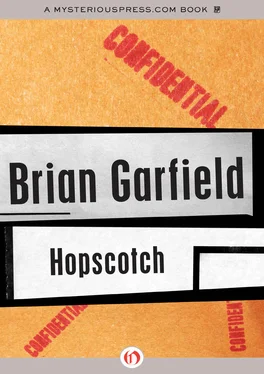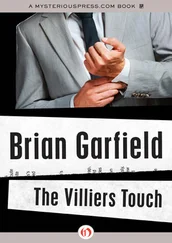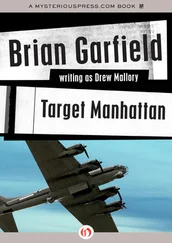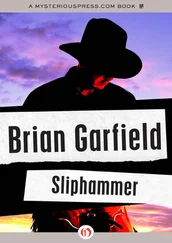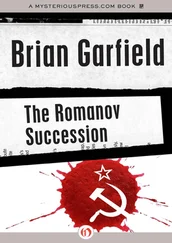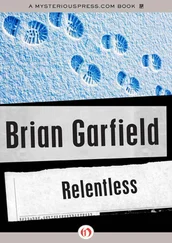Brian Garfield - Hopscotch
Здесь есть возможность читать онлайн «Brian Garfield - Hopscotch» весь текст электронной книги совершенно бесплатно (целиком полную версию без сокращений). В некоторых случаях можно слушать аудио, скачать через торрент в формате fb2 и присутствует краткое содержание. Жанр: Шпионский детектив, на английском языке. Описание произведения, (предисловие) а так же отзывы посетителей доступны на портале библиотеки ЛибКат.
- Название:Hopscotch
- Автор:
- Жанр:
- Год:неизвестен
- ISBN:нет данных
- Рейтинг книги:3 / 5. Голосов: 1
-
Избранное:Добавить в избранное
- Отзывы:
-
Ваша оценка:
- 60
- 1
- 2
- 3
- 4
- 5
Hopscotch: краткое содержание, описание и аннотация
Предлагаем к чтению аннотацию, описание, краткое содержание или предисловие (зависит от того, что написал сам автор книги «Hopscotch»). Если вы не нашли необходимую информацию о книге — напишите в комментариях, мы постараемся отыскать её.
Hopscotch — читать онлайн бесплатно полную книгу (весь текст) целиком
Ниже представлен текст книги, разбитый по страницам. Система сохранения места последней прочитанной страницы, позволяет с удобством читать онлайн бесплатно книгу «Hopscotch», без необходимости каждый раз заново искать на чём Вы остановились. Поставьте закладку, и сможете в любой момент перейти на страницу, на которой закончили чтение.
Интервал:
Закладка:
The field had two runways laid out in an X; they were graded earth strips and there was no radar or strobe-light strip-it was strictly a daylight field for small craft. There were two maintenance hangars but if you wanted major work done you had to go to one of the bigger airstrips that had overhauling facilities. The planes were parked at hard-stands along the verges of the runways in high yellow grass. Some of them were tied down against the danger of high winds that might tip them over and snap a wing.
They’d never kept a night watchman and he assumed they’d had no reason to hire one since he’d taken his lessons here. He drove without lights right up to the dark hangars and switched off.
According to Oakley’s watch it was four-twenty. This time of year nothing would begin stirring here until at least seven-thirty, more likely eight. There was plenty of time. He checked out the hangars cursorily and then went down the line of aircraft to pick out a plane. He knew what sort he wanted but he wasn’t sure there’d be one. He’d settle for something else in that case.
But there was one. It was an old PBY Catalina amphibian-a small twin-engine flying boat on wheels. Some of the vintners liked to use amphibians because it made for handy access to quiet shores along the inlets of Lake Geneva on trips to Swiss banks they preferred not to advertise. It was a service Kendig had used a few times to get his money in and out of Zurich.
He took note of the civil air numbers painted on the plane and he went back to the hangar and broke into the office. He didn’t want to turn on a light; there were two chateaus on heights within less than a mile. He lighted a wooden match and found the key on the pegboard by the number on its tag. Nobody stole airplanes; they were too traceable; so there was no security imposed.
He pocketed the PBY key and got back in the car and drove it out the runway, racked it alongside the Catalina and got to work. He checked the fuel gauges and found it full; that was standard procedure-you filled after you landed, not before you took off; that way you were ready to go on short notice. He took out the three logbooks-by regulation there was one for the airframe and a separate one for each engine-and left them askew on the floor by the right-seat rudder pedals. He didn’t care what shape the plane was in but it had to look as if he did. Cutter wasn’t going to give him any help if he left too many doors open.
He put the suitcase in the plane, belt-strapping it onto one of the pry-rigged passenger seats in the midships blister. The manuscript was in the suitcase. He had to give it up to them or they wouldn’t buy any of it; and it had to be the real manuscript, not a fake and not a partial-no tricks, nothing withheld.
He took the clochard out of the trunk and laid him out on the grass under the high wing. He stripped the clochard to the skin. There were scars here and there-it hadn’t been an easy life for the clochard-but none of that would matter. He brought the four-liter can of gasoline out of the Peugeot and bathed the corpse with the stuff to get rid of any telltales that might have adhered. The clochard’s filthy rags had to disappear; Kendig bundled them up and set the bundle aside.
He poured the acid solution out of the Vittel bottle onto the clochard’s face. He wasn’t cold-blooded enough to do it without a cringing nausea. When the acid had done a fair job of eradicating features he washed it away with gasoline. Then he dressed the body in his own old underwear and socks and Oakley’s suit and topcoat; he put Oakley’s identification and wallet in the clothes along with the passport photo of himself that he’d rescued from the London police sergeant’s desk. Then he added the Alexandre Vaneau passport-again with his own photo in it-to the contents of the dead man’s pockets.
The clochard was stiffening with rigor by now and that was all to Kendig’s advantage. He dragged the corpse forward, closing his mind to the ghoulishness of it and the reek of gasoline. He propped the body in the pilot’s seat and belted it in.
Outside on the grass he opened the bundle of filthy clothes and spread the coat out flat. He piled into the center of it the rest of the clothes, the empty Vittel bottle and his own spare pair of shoes. He tied up the arms and skirt of the coat and carried the bundle into the plane together with the can of gasoline. Then he went back outside again and explored in the trunk of the Peugeot. It was slightly redolent of the dead but that would dissipate. He found a combination windshield-scraper and brush; it would do. He used it to rake the grass where he’d been working. He left no sign in the earth except a set of vague foot-impressions to show he’d walked from the car to the plane; he left the trunk lid ajar with the keys in it both to air it out and to indicate he’d been in a hurry.
When he climbed in the waist door he latched it shut behind him and went forward up the steeply tilted companionway into the cockpit. He tested the clochard’s limbs but they hadn’t stiffened quite enough yet. He couldn’t bear the thought of sitting beside the ghastly dead man for any length of time; he went back into the fuselage and sat under the blister watching the night. Along the edge of the field bare branches were silhouetted against the dark sky, as jagged as cracks in a porcelain surface. Scarves of cloud hung low in the southwest but the clear intense cold held.
He felt a vague urge: the impulse to communicate his gratitude to Carla Fleming. He remembered her soft self-assured voice, her long-boned Modigliani features. He’d never get in touch with her; he couldn’t take the chance.
More than half his money was in the clochard’s money belt and the suitcase but he had about forty thousand dollars in his own belt and pockets and when it ran out he had the talent to make more. He had no papers of any kind but that wasn’t a problem either. This would be a poor time to try to make long-term plans. He’d drift a while and think about what he wanted to do with the rest of his years. There was plenty of time for it. He wouldn’t get bored; he’d got over that, he’d changed too much to fear it. He was capable of life now; perhaps even capable of love-he’d find out about that someday.
He stripped Oakley’s watch off his wrist. After six now; he couldn’t wait longer. He moved at a crouch into the cockpit and got the watch onto the dead wrist. The joints were so stiff he had a lot of trouble moving them; that was how he wanted it.
It had to be done with great caution because if there was a spark at the wrong moment it could incinerate him. He threw all the windows wide open before he began to splash the gasoline around. He poured it liberally around the cockpit, over the corpse and the upholstery. Then he capped the gasoline can and stuffed it into the bundle of things he couldn’t leave behind. He took the candlewick fuse from his shirt pocket and wedged it into a metal seam by the edge of the soaked carpeting. Now he had to wait again while the wind carried the fumes off and evaporated the surface petrol and the rest of it soaked deep into things.
It was a risk but he had to take it and when he judged enough time had passed he turned the ignition switch on and pressed the Mesh button for the Number One engine. The flywheel spun with a grinding effort but the engine didn’t catch right away and he pushed the mixture control to full rich. No sparks in the cockpit; this wouldn’t have worked with a plane that had the engine in the nose of the fuselage. Both engines were in nacelles high on the wings and outboard of the cockpit.
The flywheel struggled and he heard the cylinders catch; he revved it a bit and then got the star-board engine running.
He unlocked the brake and ran the engines up and the PBY started to bounce, rolling slowly out of its parking space onto the strip. He kicked the pedal hard and she turned sedately to the right; he lined her up on the runway and taxied slowly to the far end and made the U-turn wide and slow. Now he had the length of the runway in front of him and a row of high trees at the far end. He remembered the strain with which the instructors regarded student takeoffs; if you didn’t get the nose up fast enough you’d go right into those trees or the power lines beyond.
Читать дальшеИнтервал:
Закладка:
Похожие книги на «Hopscotch»
Представляем Вашему вниманию похожие книги на «Hopscotch» списком для выбора. Мы отобрали схожую по названию и смыслу литературу в надежде предоставить читателям больше вариантов отыскать новые, интересные, ещё непрочитанные произведения.
Обсуждение, отзывы о книге «Hopscotch» и просто собственные мнения читателей. Оставьте ваши комментарии, напишите, что Вы думаете о произведении, его смысле или главных героях. Укажите что конкретно понравилось, а что нет, и почему Вы так считаете.
